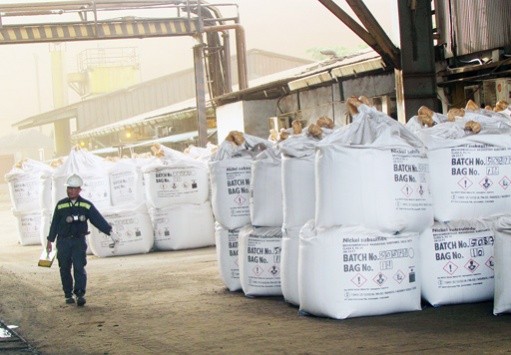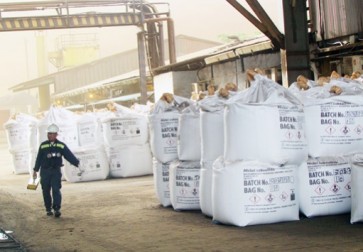Popular Reads
Top Results
Can't find what you're looking for?
View all search resultsPopular Reads
Top Results
Can't find what you're looking for?
View all search resultsAccountability trap in mining industry
Accountability can also be hijacked by state institutions to impose the dominant industrialization imperatives.
Change text size
Gift Premium Articles
to Anyone
N
orth Sulawesi Police’s decision to name the regent of Bolaang Mongondow in North Sulawesi a suspect in a vandalism case provides an avenue to revisit the value of accountability in the mining industry.
The regent of Bolaang Mongondow regency, Yasti Soeprodjo Mokoagow, is at the center of an investigation for allegedly ordering dozens of public order officers to vandalize an under construction cement factory.
Although accountability is traditionally used by the powerless to hold the powerful accountable, the Bolaang Mongondow case illustrates that accountability can also be hijacked by state institutions to impose the dominant industrialization imperatives.
Perhaps Yasti shared the general public apathy toward the establishment of a cement factory in North Sulawesi. Several news outlets documented the perpetual protests directed toward PT Conch North Sulawesi Cement (CNSC) for several reasons, such as the lack of a license to operate, its impact on the environment and the preference that is given to foreign workforce over local people.
After several meetings to clarify the situation with the management of CNSC, the regent finally decided to close the factory. Despite its popularity, the decision leaves room for those who do not support the action to launch a counterattack. Although the police’s decision was arguably based on an impartial investigation, it is difficult to separate this decision from the general tendency to prioritize a conducive investment climate over the interest of local stakeholders.
Understanding this case from the point of view accountability could provide interesting insight into the dynamics of mining governance. Peter Newell and Joanna Wheeler explained in their book that in addition to vertical accountability from the state to the general public, accountability can also be applied to state institutions horizontally.
In the modern political context, this is parallel to the notion of check and balances between the executive, legislative and judiciary branches of government. Nonetheless, horizontal accountability cannot and perhaps should not stand alone and disconnected from the vertical accountability to the public.


















